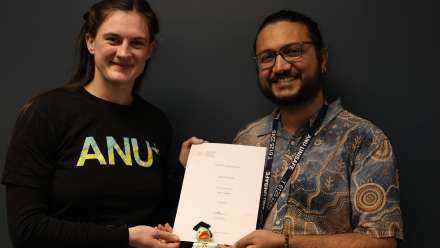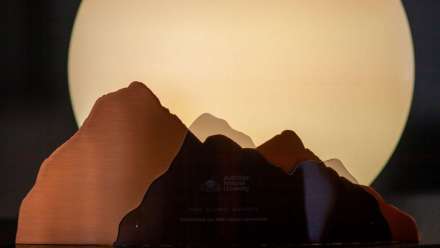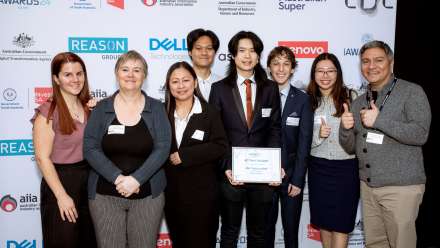A PhD forged in the fire of life
Secretly, I wish I could be like Greta Thungberg.
Postgraduate research of any kind is a huge life undertaking, but no one warns you that it may be just one of the many challenges in the years-long mental marathon.
Alex Van Der Meer Simo encountered this very problem as he grappled with a PhD on the socio-economic effects of different approaches to tree plantation on the livelihoods of smallholder farmers in the landlocked Southeast Asian nation of Laos.
He and his wife Emma had two children during his PhD. Annabel, their first, is partly deaf and Hugo is profoundly deaf - both now have hearing thanks to the wonders of technology.
"I met Emma, an elephant vet, when I moved to Laos in 2009 to work for a Chinese environmental NGO," Alex says.
"My multicultural background - Spanish and Dutch - led me to study and work in other countries, first to study a master's in environmental science in the Netherlands, and then to work mainly in agricultural and rural development projects.
"I have followed her ever since to Darwin, Melbourne and Canberra, which is now home to our young family.
Following Emma is the best decision Alex has ever made, he says.
"Along that trip, we have been blessed with two beautiful kids, a blessing that we are conscious that many couples willing to have children unfortunately are not given," Alex says.
"Despite their disabilities, our children are lucky to be raised in Canberra's inner north, an urban forest that is a source of bright and caring people."
Alex credits his wife and supervisory panel for keeping him sane during his postgraduate research and the pandemic, but he's got involved in a range of activities to bring balance to his life.
"The 1993 L'Orxa bushfire in Spain, where I'm from, motivated me to study forest engineering to contribute to the sustainable development of the rural environment around my hometown," he says.
"This was also part of my motivation to join the ACT Rural Fire Service as volunteer firefighter and committee member with the Hall Volunteer Bush Firefighters Brigade.
"Volunteering as a bushfire fighter and a becoming a dad of two children have strengthened my environmental consciousness and interest forest restoration. Secretly, I wish I could be like Greta Thungberg."
Alex became a leader in the Postgraduate and Research Students' Association (PARSA) Shut Up and Write initiative, helping other PhD students (and is still, post completion) his cohort of Fenner School students.
"For almost 4.5 years, I have brought PhD students together on a regular basis to focus on short, intense bursts of writing. But it's much more than just writing," he says.
"In fact, it would be hard to find a space on campus that fosters the sense of community more than Shut Up and Write. It provides PhD students the opportunity to share methods, successes, and life challenges and dreams beyond the PhD.
"Working from Fenner provided me a sense of being member of a beyond campus community of people around the world who above all care about others; either farmers, trees, butterflies, birds or drops of water."
Alex's PhD, which was partly funded by the Australian Centre for International Agricultural Research (ACIAR), has shown the best guarantee for tree plantations to contribute positively to climate change mitigation, conservation and economic development efforts is adhering to a clear set of principles.
"These principles include recognising local people's interests in maintaining diversified livelihood and the design of plantations that allow space for biodiversity and intercropping by farmers," he says.
"I am hopeful that tree plantations will become a positive sustainable contribution to the livelihoods of poor farmers."
Alex will graduate with a PhD in July.


